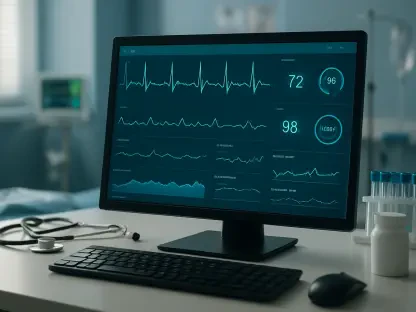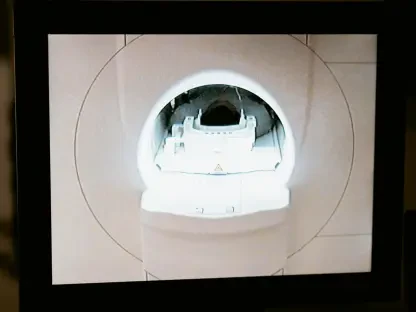In the heart of Jacksonville, Florida, a growing controversy surrounds the city’s contracted telehealth provider, Telescope Health, as local officials raise serious questions about its operations and ethical standing, with taxpayer money at stake and allegations of potential misconduct swirling. The Duval DOGE Special Committee has taken a decisive step toward launching a subcommittee to investigate these concerns. This move reflects broader anxieties about transparency, cost-effectiveness, and the integrity of municipal contracts in an era where telehealth services are increasingly vital to public health. As accusations of conflicts of interest and even fraud emerge, alongside staunch denials from the provider, the situation has sparked a heated debate among city leaders and stakeholders. The unfolding investigation promises to shed light on whether the relationship between the city and Telescope Health is built on trust or tainted by hidden agendas, setting the stage for a deeper look into public spending accountability.
Investigating Financial and Ethical Concerns
The primary catalyst for the investigation into Telescope Health stems from apprehensions about the financial implications of its contract with Jacksonville, which allocates a substantial $1.5 million to the provider this year. Councilmember Rory Diamond, representing District 13, has been vocal about the need to scrutinize whether a more cost-effective alternative exists and whether the current arrangement truly serves the public’s best interests. Beyond the monetary aspect, there are pointed questions about call referral protocols and the volume of services provided, with Diamond emphasizing that taxpayer funds must be spent responsibly. Allegations of possible Medicare or Medicaid fraud have also surfaced, adding a layer of complexity to the probe. These concerns are compounded by the intricate relationships between Telescope Health, Baptist Health, the JFRD’s Medical Director, and Emergency Resources Group, the parent company staffing Baptist Health’s Emergency Room, raising red flags about potential conflicts of interest that could undermine public trust.
As the investigation gears up, the Duval DOGE Special Committee is preparing to delve into these multifaceted issues through a dedicated subcommittee set to begin its work in the coming weeks. Council President Kevin Carrico, from District 4, has indicated that the subcommittee will meticulously review tips and information related to the telehealth program to uncover any irregularities. Should cooperation from involved parties falter, Carrico has not ruled out the formation of a Special Investigatory Committee with subpoena power, a measure that would allow for compelling testimony under oath. This potential escalation underscores the gravity of the situation and the determination of city officials to ensure accountability. The financial stakes, combined with the ethical questions surrounding Telescope Health’s operations, position this inquiry as a critical test of governance in Jacksonville, with implications that could resonate beyond the city’s borders as other municipalities grapple with similar oversight challenges in telehealth partnerships.
Allegations and Defenses in the Spotlight
Amid the mounting scrutiny, Telescope Health’s CEO, Dr. Matthew Thompson, has firmly denied any wrongdoing, asserting that the company operates with integrity and cannot even bill Medicare or Medicaid, directly countering fraud allegations. Thompson has expressed significant frustration over what he perceives as unwarranted reputational damage, arguing that the accusations lack substantive evidence and may be driven by other motives. This defense highlights a stark contrast between the concerns of city officials and the provider’s stance, creating a tense dynamic as the investigation looms. The situation is further complicated by personal and political undercurrents, including an email from a couple of years ago that revealed Duval DOGE Committee Chair Ron Salem approached Telescope Health seeking a financial relationship targeting specific facilities. After being rebuffed, Thompson claims Salem’s attitude shifted, prompting calls for Salem’s recusal due to perceived bias, though Salem has dismissed these claims as a distraction tactic.
Adding another layer to the controversy, the clash between transparency advocates and Telescope Health reveals deeper tensions about trust in public-private partnerships. While city officials like Diamond and Carrico push for clarity in how municipal funds are allocated, Thompson’s rebuttals suggest that the scrutiny might be fueled by personal or political agendas rather than genuine ethical concerns. This friction illustrates the challenges of navigating accountability in a landscape where past interactions and rejections can influence current proceedings. Salem’s insistence on continuing his role, despite the allegations of bias, further muddies the waters, raising questions about the impartiality of the investigation. As the subcommittee prepares to sift through evidence and testimonies, the divergent perspectives between accusers and defenders will likely shape the narrative, making it imperative to separate fact from speculation in pursuit of a resolution that prioritizes the public good over individual disputes.
Navigating the Path to Accountability
Looking back, the investigation into Telescope Health marked a pivotal moment for Jacksonville’s commitment to ethical governance, as city officials grappled with balancing fiscal responsibility against allegations of impropriety. The formation of the subcommittee under the Duval DOGE Special Committee represented a concrete step toward addressing concerns that had simmered beneath the surface for too long. With financial transparency at the forefront, alongside the specter of conflicts of interest, the probe sought to answer critical questions about how taxpayer money was managed in telehealth contracts. The personal and political frictions that emerged, particularly between Telescope Health’s leadership and certain council members, underscored the complexity of ensuring fairness in such inquiries, reflecting a broader struggle to maintain trust in municipal dealings.
Moving forward, the next steps for Jacksonville involve a thorough and unbiased review of Telescope Health’s operations, with an emphasis on actionable outcomes that could reform how telehealth providers are selected and monitored. Should the subcommittee uncover evidence of mismanagement or ethical lapses, establishing stricter guidelines for vendor contracts could serve as a safeguard against future controversies. Additionally, fostering open dialogue between city leaders and service providers might mitigate misunderstandings and prevent personal grievances from derailing public interest initiatives. If a Special Investigatory Committee becomes necessary, its findings could set a precedent for how similar issues are handled across other cities, offering a blueprint for accountability. Ultimately, the resolution of this matter will likely hinge on a commitment to transparency, ensuring that the health and financial well-being of Jacksonville’s residents remain the guiding priority in all municipal partnerships.









